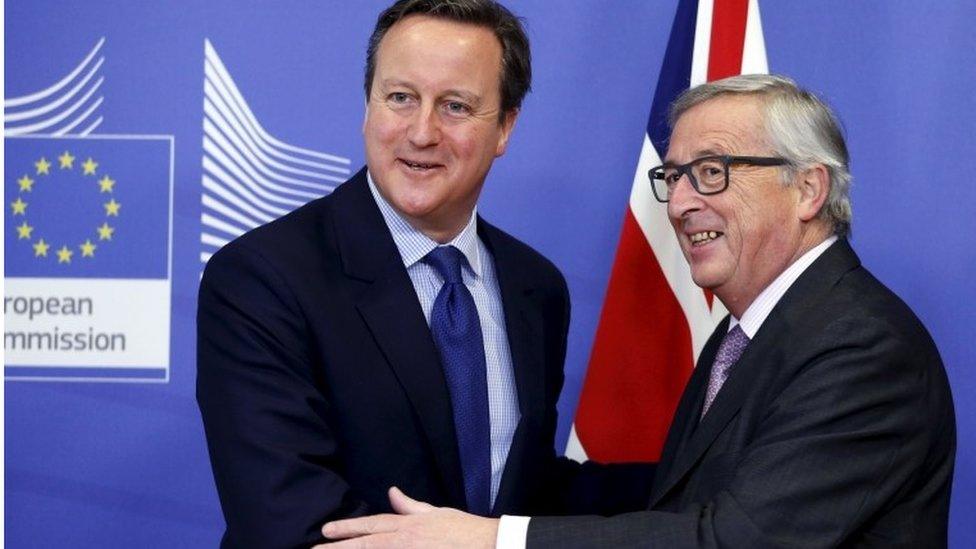EU deal: A hard-headed calculation to avoid Brexit
- Published
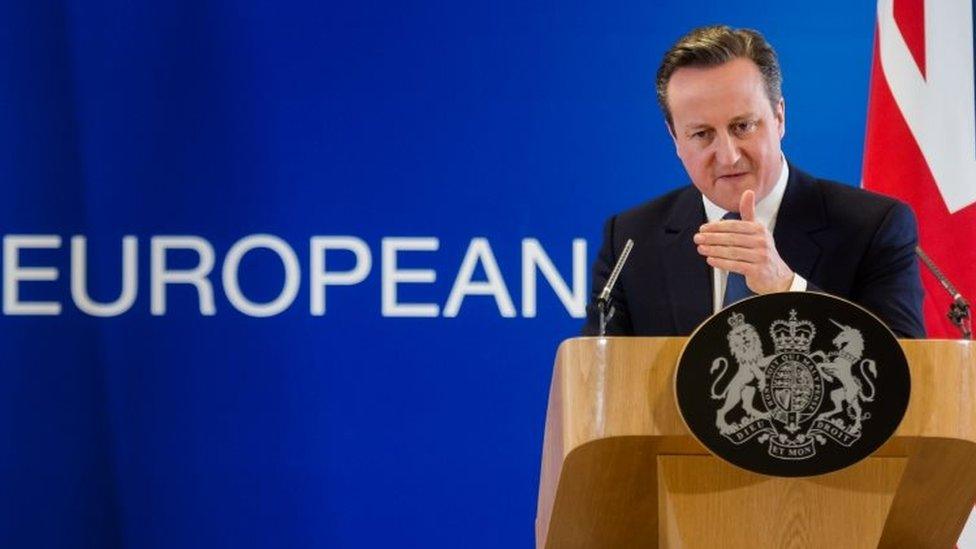
David Cameron now hopes to persuade the British public to vote "Yes" to staying in the EU
Reino Unido, Grossbritannien, Storbritannien, Grande-Bretagne - whichever corner of this overcrowded, shouty press centre you stumbled through the last couple of days at this European summit you heard "Great Britain" being reported on - loudly and with lots of gesticulating hand movements in a multitude of European languages.
Britain has done it again.
It paraded itself on the EU stage as being more equal than the other equals in a union of 28.
In the past, the UK has managed to negotiate a rebate from the EU budget, exempted itself from joining the euro and has arranged quite a number of opt-outs on EU legislation.
A "special status agreement" is how the summit host, European Council President Donald Tusk, described the UK-EU reform package negotiated late on Friday by David Cameron.
He got special treatment too.
Tradition dictates that the first post-summit press conference is held by Mr Tusk and Jean-Claude Juncker, the President of the European Commission.
It is usually followed by a mass cacophony of EU leaders' pressers all taking place more or less at the same time.
On Friday though, Mr Cameron was allowed to preside over the podium alone for a full 20 minutes, elaborating on and crowing over his deal, speaking of the EU largely as an enrichment tool for Britons. A body the UK could benefit from or ignore depending on its usefulness.
"The best of both worlds," he said.
'I do not love Brussels'
His European peers - who have spent weeks and months on these negotiations for Britain - must have been biting their tongue - hard - when they heard his tone.
I saw a number of colleagues in this most European of press rooms bristle.
European Commission President Jean-Claude Juncker: "The deal is a fair one for Britain"
Gone was the shuttle diplomacy of David Cameron, who invested so many air miles charming, listening to and selling his reform plan to other EU leaders.
In his place was a British conservative prime minister gearing up for a divisive referendum at home on EU membership.
"I do not love Brussels. I love Britain," avowed David Cameron.
"When it comes to Europe, mine is a hard-headed assessment of what is in our national interest."
Hard-headed decision
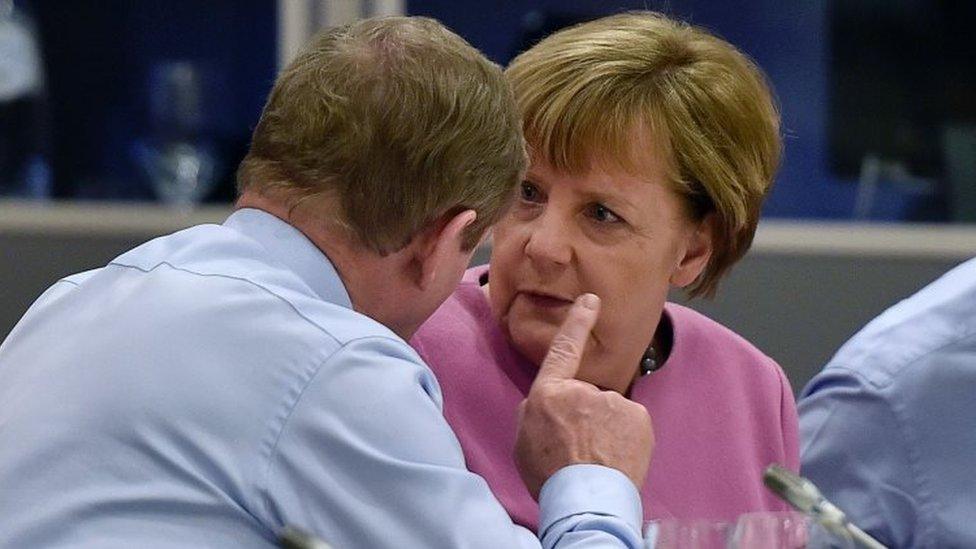
German Chancellor Angela Merkel (right) said the deal was a "fair compromise"
But then the other EU leaders acted in their national interest too.
Their hard-headed decision was that it's better for them if the UK stays in the EU.
"If GB goes, the rest of us have nothing," Estonian Prime Minister Taavi Roivas told me.
In the meantime, he and the others put on semi-theatrics for their voters around protecting their rights against David Cameron's reforms.
Central and Eastern Europeans pushed back against cutting EU migrant benefits. France bared its teeth over safeguards for the City of London from eurozone legislation.
But in the end, they pretty much gave David Cameron what he wanted.
A decent deal on narrow but key issues.
Not the fundamental change in EU-UK relations he had initially promised but enough, he hopes, to encourage the majority of his party and the British public to vote "Yes" to staying in the EU come referendum time.
Dalia Grybauskaite , Lithuania's outspoken president, became the media darling at this summit, winning hack hearts and minds when she predicted from the first moment that: "Everyone will have their own drama. And then we will agree."
And so it was.
And now the leaders of the EU institutions - the Commission, European Parliament and Council who clearly enjoyed being the focus of and lead-story trigger for the hungry-for-any-details British press during the negotiations - will have to endure returning to relative UK obscurity once again.
As the UK media now turns its sights to Westminster and the referendum itself.

Read more:

- Published16 February 2016
- Published2 February 2016
- Published2 February 2016
- Published31 January 2016
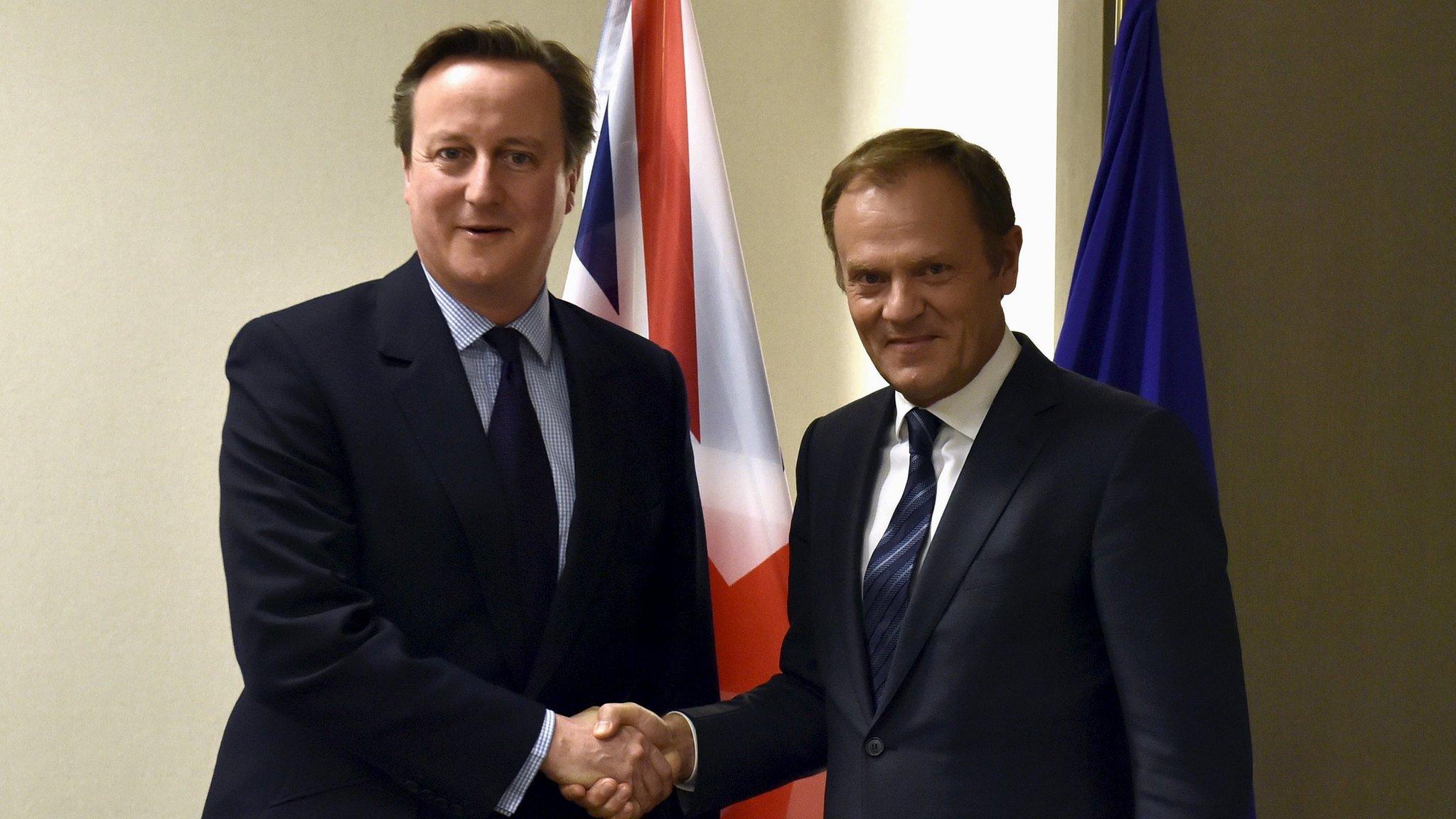
- Published17 February 2016
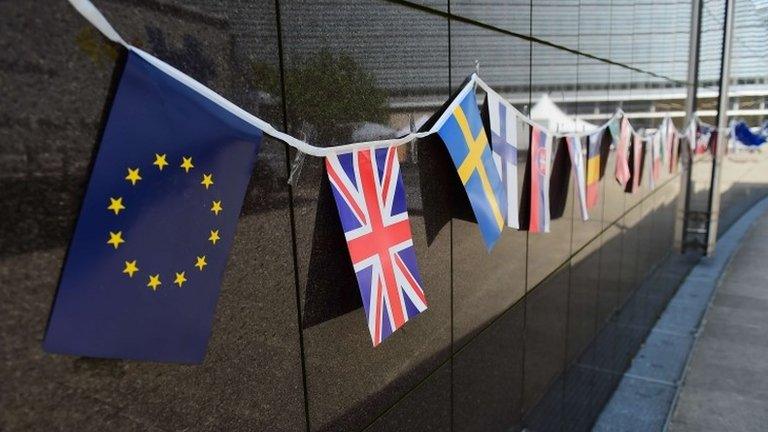
- Published29 January 2016
